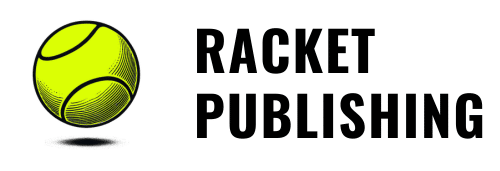Jump to ...
When you’ve been in the publishing world as long as I have, you’ve seen all types of actors. In the past, I’ve written about the charlatans of hybrid publishing. Today, I’ll focus on quickie book services.
Compressed Timelines
I’m talking about folks who promise to ghostwrite and publish a book in an insanely short period of time—sometimes two to three months. In the past, these service providers typically interviewed their clients and summarized those conversations into chapters. In the past 18 months or so, some of these outfits have adopted AI-driven approaches. Clients provide content in the form of blog posts, podcast audio transcripts, white papers, interviews, slides, and other content. Out pops a morass of long-form content. A human being then curates that text into something resembling a book.
If you want to go that route, have at it. Your total cost will be a fraction of what you’d expect to spend at reputable hybrid publishers, including Racket. You’ll spend far less time than you would as well. For the following reasons, though, the money and time saved from a paint-by-numbers approach are a classic example of the juice not being worth the squeeze.
Proper Research, Ideation, and Content Curation Take Time
Say that you sit down with a quickie ghostwriter for a one-hour interview. During that time, you answer questions that the ghostwriter will turn into a chapter in your forthcoming text. Will those words accurately reflect your views on different subjects? Probably, but what are the odds that your chapter is truly bookworthy?
Repeat ten to twelve times and voilà!!
Here are a few more questions to consider:
- Are you citing the most recent research on your subject?
- Have you included compelling stories that support your book’s overall thesis?
- Does the chapter advance the big idea in your book?
I have spent more than 15 years writing professionally and working with aspiring authors in different capacities. For research purposes, I’ve conducted hundreds of interviews. Never once has the transcription of a single, hour-long interview resulted in a proper chapter. Even my chapter-long case studies have required far more time and effort than that.
Brass tacks: If something seems too good to be true, it is.
Relevance
You’ve written a bunch of blog posts over the past few years? Great. That doesn’t mean that those articles hold up now. Publishing expert Jane Friedman makes this astute point in a recent podcast.
Your existing content may not make for an insightful book.
Flow and Organization
Are you so hell-bent on incorporating last year’s content that today’s readers find your book disjointed? Even if your general points in previous posts and slides remain valid, a quickie approach will likely result in a disjointed final product.
I’ve seen plenty of blog-to-book projects that met this description, although some authors have been able to successfully repurpose their blog posts as books. Eric Reis set the gold standard.
The Struggle Is Worth It
Bottom line: Your existing content may not make for an insightful book.
What You Need to Know
AI can certainly help the writing and publishing processes. Those who think that generative AI cannot research, refine, brainstorm, and summarize are sorely mistaken. By the same token, though, it alone won’t result in a book of any import. Ditto for quickie ghostwriters who spend a few dozen hours with their clients.



0 Comments